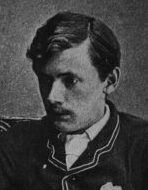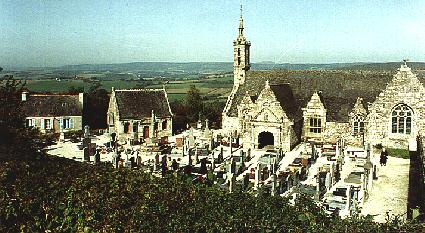Ernest C. Dowson
(1867 - 1900)
|
Intro |
Butterworth
|
Dymock Poets |
Roelofs
|
Moeran |
de Bock
|
Breitner |
Schelfhout
|
Olie |

Ernest Christopher Dowson werd geboren in Kent
in Engeland en genoot zijn opleiding te Oxford,
hoewel hij daar zonder
diploma vertrok. Hij werd lid van de Rhymer's Club en verzorgde gedichten
voor The Yellow Book en The Savoy. In 1891 ontmoette hij Adelaide Foltinowicz,
dochter van een
restauranthouder, toen 12 jaar oud en zij stond in een
aantal van zijn verzen symbool voor liefde en
onschuld. Twee jaar lang
maakte hij haar het hof, maar toen zij de huwbare leeftijd bereikte trouwde
zij met een oberdie werkte in het restaurant van haar vader. Binnen een
paar maanden tijd pleeg-
den zijn ouders in 1895 zelfmoord en daarna zwierf
hij doelloos rond door Engeland, Frankrijk en
Ierland. Hij was bevriend
met W.B. Yeats, die hem beschreef als 'timide, stil en een beetje melan-
cholisch. Hij stierf in 1900 als gevolg van overmatig drankgebruik op de leeftijd
van 33 jaar. Waar-
schijnlijk zijn meest beroemde werk is: 'Non
Sum Qualis eram Bonae Sub Regno Cynarae',
in het
Engels vertaald als:'I am no more
the man I was in the reign of the Good Cynara'.
Het zijn de over-
peinzingen van een geliefde die zijn gevoelens voor een voorbije liefde terzijde probeert te schui-
ven, maar daarin niet slaagt...
NON SUM QUALIS ERAM BONAE SUB REGNO CYNARAE
Last night, ah, yesternight, betwixt her lips
and mine
There fell thy shadow, Cynara! thy breath was
shed
Upon my soul between the kisses and the wine;
And I was desolate and sick of an old passion,
Yea, I was desolate and bowed my head:
I have been faithful to thee, Cynara! in my fashion.
All night upon mine heart I felt her warm heart
beat,
Night-long within mine arms in love and sleep
she lay;
Surely the kisses of her bought red mouth were
sweet;
But I was desolate and sick of an old passion,
When I awoke and found the dawn was gray:
I have been faithful to thee, Cynara! in my fashion.
I have forgot much, Cynara! gone with the wind,
Flung roses, roses riotously with the throng,
Dancing, to put thy pale, lost lilies out of
mind;
But I was desolate and sick of an old passion,
Yea, all the time, because the dance was long:
I have been faithful to thee, Cynara! in my fashion.
I cried for madder music and for stronger wine,
But when the feast is finished and the lamps
expire,
Then falls thy shadow, Cynara! the night is thine;
And I am desolate and sick of an old passion,
Yea, hungry for the lips of my desire:
I have been faithful to thee, Cynara! in my fashion.
Het tweede werk is waarschijnlijk het andere belangrijke
gedicht waardoor Dowson voortleeft in
onze herinnering.. Het geeft ons
een beeld van de tijd waarin Dowson zijn werken schreef: De
decadente periode
in de Engelse literaire geschiedenis. Het motto aan het begin van het gedicht
dat opweegt tegen de zorgeloze dagen van weleer, de essentie van het leven....
VITAE SUMMA BREVIS SPEM NOS VETAT
INCOHARE LONGAM
(The brief sum of life forbids us the hope of
enduring long - Horace)
They are not long, the weeping and the laughter,
Love and desire and hate:
I think they have no portion in us after
We pass the gate.
They are not long, the days of wine and roses:
Out of a misty dream
Our path emerges for a while, then closes
Within a dream.

Enclos Paroissial - Lannédern/Finistère,
Bretagne
IN A BRETON CEMETERY
They sleep well here,
These fisher-folk who passed their anxious days
In fierce Atlantic ways;
And found not there,
Beneath the long curled wave,
So quiet a grave.
And they sleep well,
These peasant-folk, who told their lives away,
From day to market-day,
As one should tell,
With patient industry,
Some sad old rosary.
And now night falls,
Me, tempest-tost, and driven from pillar to post,
A poor worn ghost,
This quiet pasture calls;
And dear dead people with pale hands
Beckon me to their lands.